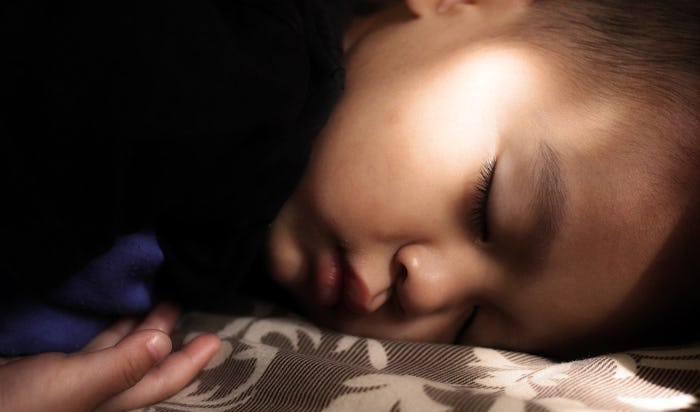Sleep training means something different to every parent. Since each baby has their own personality and sleeping habits, it makes sense to assume that each method of sleep training will work differently for each family. To some, gentle approaches like "camping out" for a few nights works best. Others don't need to be sleep trained at all. And for some, more rigid methods are required. It's normal for parents to wonder how sleep training affects kids later in life, especially since it's such an important decision at the time (regardless of how sleep deprived you actually are.) But research suggests that the effect of the various sleep training methods is relatively small long term.
In fact, one study published in the American Academy of Pediatrics, which included 225 families with babies from 8 to 10 months using various "behavioral infant sleep intervention," noted that after a five year period there were "no marked long-lasting effects" on either the children, the parents, or their relationships with each other. However, an article from The New York Times noted that the study in question did not include the "all-in crying it out" method because it reportedly causes "too much infant and parent distress."
So although the more gentle sleep training methods may not have any long term effects, experts claim that the controversial method of crying it out may. According to one piece from Belly Belly, which cited six different experts on the issue, letting your baby "cry it out" (ie. offering no comfort until your child falls asleep, or the "extinction method,") at least has several negative side effects short term, although the long term effects aren't fully known.
In the article, Dr. Margot Sunderland, author of the best-selling book What Every Parent Needs To Know, stated that leaving a child in a state of distress for a prolonged period without offering comfort affects them on a cellular level, specifically the "migration" of their cells as they get to where they need to be. She went on to say that the first year of life is critical for developing the chemical systems that are responsible for handling stress and the ability to keep calm later in life.
Although the research isn't conclusive about the long term effects of letting your baby cry it out, with the evidence of the short term negative effects, why risk it? Especially with the other approaches which, studies say, pose little to no consequences to either you or your baby.
